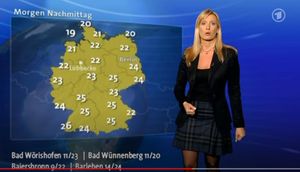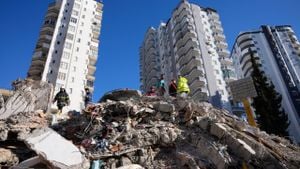Russian President Vladimir Putin has recently called for the creation of regulatory mechanisms to facilitate the return of Western companies to the Russian market, emphasizing the need to support domestic manufacturers amid the challenging economic environment shaped by sanctions.
During a technology forum held on Friday, Putin stated, “We can regulate the return to our market of those who want to return accordingly [by] creating an advantage for our own manufacturers.” This remark reflects Russia's intent to reclaim some of the economic cooperation lost since the full-scale invasion of Ukraine began in February 2022, which prompted hundreds of Western firms to exit or scale back their operations.
Putin's statements coincide with discussions among his negotiators about resuming “mutually advantageous economic cooperation,” including potential energy projects in the Arctic with U.S. counterparts and Saudi Arabia. These talks mark the first direct dialogue between U.S. and Russian officials in three years, aiming to navigate the geopolitical tensions stemming from recent events.
“I ask the government to think about how we can regulate the interaction between our enterprises and those of our competitors,” the Russian leader mentioned, hinting at rules he described as “subtle and careful, but necessary.” He also highlighted how Western sanctions, rather than solely hindering Russia's economy, have played a “stimulating role” for domestic production, positing the idea of advantageous conditions for local entities as Western firms contemplate re-entering the Russian market.
First Deputy Prime Minister Denis Manturov supported Putin's vision by announcing on Thursday, “We will calculate companies on a case-by-case basis if they seek to return to Russia.” This indicates Russia's willingness to negotiate specific terms for Western companies wishing to re-establish their presence, which many onlookers view as cautiously optimistic. Nevertheless, Manturov also clarified on Friday, “None of the departed Western companies with buyback options have exercised them so far,” casting doubt on the immediate prospects for the return of these firms.
The conversation around regulating the return of Western companies highlights the complex dynamics at play within Russia's economy. After facing mounting sale discounts and exit fees aimed at the firms choosing to leave, remaining Western companies find themselves under scrutiny for their contributions to Russia's wartime economy. This situation creates both opportunities and challenges for Russia as the government attempts to balance its domestic manufacturing interests with the potential advantages of foreign investment.
Reports have surfaced indicating the Russian government realizes the importance of Western companies as pivotal components of their economic structure. Putin's recent comments hint at the possibility of reigniting business relationships, potentially marking the onset of renewed interaction between Western and Russian markets, provided negotiations can progress amid the complicated political backdrop.
While the broader geopolitical relationships remain strained, communication between Washington and Moscow shows signs of life. The renewed dialogue about cooperative energy initiatives not only highlights the need for economic relations but also reflects back on the pressing need to grapple with the aftermath of sanctions and their lasting impact. For Western firms, the stakes are high, as they weigh their strategic moves against both economic recovery and international pressure.
Russia's approach to integrating Western businesses back could serve as both a test and demonstration of how the country is adapting to the realities imposed by sanctions over the past couple of years. With Putin’s insistence on favoring domestic output and the government's contemplative view on returning businesses, the future of Western enterprises might hinge on Russia's ability to strike this precarious balance.
While it may still be premature to predict how these changes will take shape, the interest expressed by both sides suggests there may be more discussions on the horizon. Putin's administration is clearly eager to bring Western companies back, but it must tow the line between offering incentives for return and protecting domestic players.
For the moment, Russia looks to reconvene its partnerships and restore avenues of economic cooperation without sacrificing its native firms’ competitive edges. The upcoming months will likely reveal how successful these strategies will be, as the world watches closely the developments from Russia's economic policy front.



